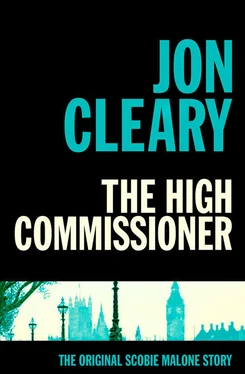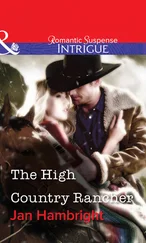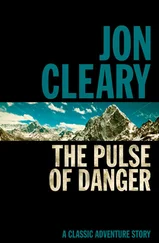“I’m from Sydney, sir. Detective-Sergeant Malone.” He produced his badge, glad of the opportunity to do so; for the time being there was no longer any need for secrecy. “I’m sorry, Mr. Quentin, but I have a warrant for your arrest for the murder of your wife Freda.”
Quentin, for all the stiff suspicion in his face, had been standing at ease before the fireplace. Now all at once he seemed to wilt: years piled into his face like grey blood and he looked his age and more. Behind his head an ormolu clock ticked like a bomb; but the bomb had already gone off. The lips, as grey now as the moustache above them, grimaced in a thin smile.
“Tumbarumba – what a password!”
“I had to try something, sir. Your secretary is quite a watch-dog.”
“But not quite good enough. I should have warned her about policemen.” He put his hands together in front of his face and bowed his head like a man in prayer. Malone had seen many reactions to arrest and he had never got over his embarrassment at some of them. He just hoped Quentin was not going to start praying out loud. But then Quentin looked up and his mouth was twisted in the same thin grimace of a smile. “I’ve often wondered what I would say to you when you came. Somehow it was a speech that never got written. And I’m said to be a very good speaker.”
“I’d save it for the trial, sir. I’m supposed to warn you—”
“I know, Sergeant. But anything I may say now won’t help you very much. You wouldn’t be here unless you had a watertight case. You don’t go around arresting ambassadors to keep up your monthly quota, do you?” He smiled without rancour. As quickly as he had wilted he was now becoming philosophical. His voice had deepened, come under control again; the Australian accent was still there but less evident, the vowels were being given their full value. He moved towards a side table on which stood a decanter and glasses. “A sherry? Or don’t you drink on duty?”
“Where I grew up, sir, sherry isn’t considered a drink. It’s something you flavour jelly or trifle with.”
“You are looking a gift prisoner in the mouth, Sergeant. But I admire your sense of occasion. Sherry is for vicars and old ladies.” He smiled again, a much warmer smile. He put down the decanter without taking the stopper from it, pulled a long tasselled cord hanging beside the fireplace. When he turned back the smile had waned. “I must have grown up in the same sort of circles as you, Sergeant. A pity I ever left them. I wonder what Tumbarumba is like now?”
There was a knock at the door and the butler opened it. Quentin ordered Scotch, then turned back to Malone as the door closed again. He stared at the detective for a long moment, then he moved to a high-backed leather arm-chair and sat down slowly and a little wearily. He gestured at the room about him, and Malone, looking about him for the first time, saw that it was a small library. Books lined three of the walls: leather-bound volumes, large illustrated books, bright-jacketed novels, sombre-titled non-fiction: Quentin, or someone in the house, had a wide taste in reading. The fourth wall held some sporting prints: spindle-shanked horses straddled hedges, a fighter in long underwear posed behind bare fists and a walrus moustache. On a small desk a woman looked with calm eyes from out of a silver frame: she looked out of place beneath the sporting prints, too much of a lady.
“This is my retreat. A diplomat doesn’t get much time to himself and he needs somewhere where he can lock himself away for an hour or so every day, just so he can be himself. All day and every day, and every night too, almost, you’re being someone else. Mr. Australia, if you like, or whatever country you represent. You need some time each day just so you can check your own identity, make sure there’s some of the original man left.” He sighed and looked up at Malone, still standing awkwardly in the middle of the room. “I’ve spent almost twenty-four years trying to lose the original man. John Corliss, that is. How did you get on to him?”
Malone told him about the political research worker. “I don’t know who gave them the tip-off. It could have been someone who recognised you from years ago.”
Quentin nodded. “It’s been a long wait. Somehow I always knew the day would come. I’ve changed in appearance. My hair went grey during the war, then afterwards I grew this moustache. But you never feel you’re really changed, you see yourself from the inside—”
They were interrupted by the return of the butler with the drinks. “Madame asks will you be long, sir?”
“Not long, Joseph.” Quentin waited till the butler had gone out of the room. He poured himself and Malone a drink each, both of them strong: he seemed to take for granted that Malone was as much in need of sustenance as himself. Malone, grateful for the drink, didn’t contradict him. “When this matter comes out into the open, Joseph is the one who’s going to disapprove of me more than anyone else. There’s no snob like a butler, and a Hungarian butler is the worst of the lot.”
“I wondered about his accent. And your secretary’s, too.” Malone held up his glass, then lowered it. “Sorry. I was going to drink to your health.”
Quentin smiled wryly. “Thank you. I’m glad they sent a man with some sensitivity.” He raised his own glass and they drank silently to each other. Then Quentin said, “Yes, about my secretary. She’s Dutch. A Dutch New Australian. She was out there for seven or eight years. Joseph’s never been there and somehow I gather he’s glad of the fact. I inherited him from my predecessor. I think he still expects to be asked some day to serve witchetty grubs and fried ants.” He sipped his drink, then took a swift gulp, put down the glass and looked up at Malone. “I’m just talking, Sergeant. Putting off the evil moment or whatever it is. What’s the next move?”
Malone told him. “We’d like it if it can be done as quietly as possible. I can get an extradition order from the court here if you insist—”
Quentin waved a long-fingered hand. “There won’t be any need for that. I’ll go quietly, as the saying is.”
“Could you be ready to leave tomorrow?”
Quentin’s chin shot up. “ When? Sergeant, don’t you read the newspapers? I’m in the middle of a conference, an important one—”
“I know, sir.” Malone sipped his own drink, hating more and more each minute this task he had been given. He still stood in the middle of the room, feeling as insecure as if he were the one who was being arrested. “But I’m afraid I haven’t been given much discretion in the matter. They want you back in Sydney at once.”
“Who does? The police? Or is it Flannery?” Malone hesitated, then nodded. Quentin barked angrily and went on: “That malicious conniving old bastard! You know why he’s doing this, don’t you?”
“I had it explained to me.”
“Not by him, I’ll bet!” Quentin got up and began to walk about the room, angrily, agitatedly; all his poise had left him, the past had caught him up, was riding his back like a savage monkey. The ormolu clock struck the half-hour and was echoed somewhere out in the hall by a deeper note. Quentin stopped, looked at the clock, then shrugged, as if time meant nothing now. But when he spoke again, his voice was still harsh, the flat accent back again. This was the voice he must have had twenty-odd years ago, Malone thought: the original man was always there in the tongue. “He’d be too shrewd to commit himself that far in front of a stranger. You are a stranger to him, aren’t you?”
“Very much so.” And glad to stay that way: Malone took another drink, washing away a taste that had been with him all the way from Sydney.
Читать дальше












